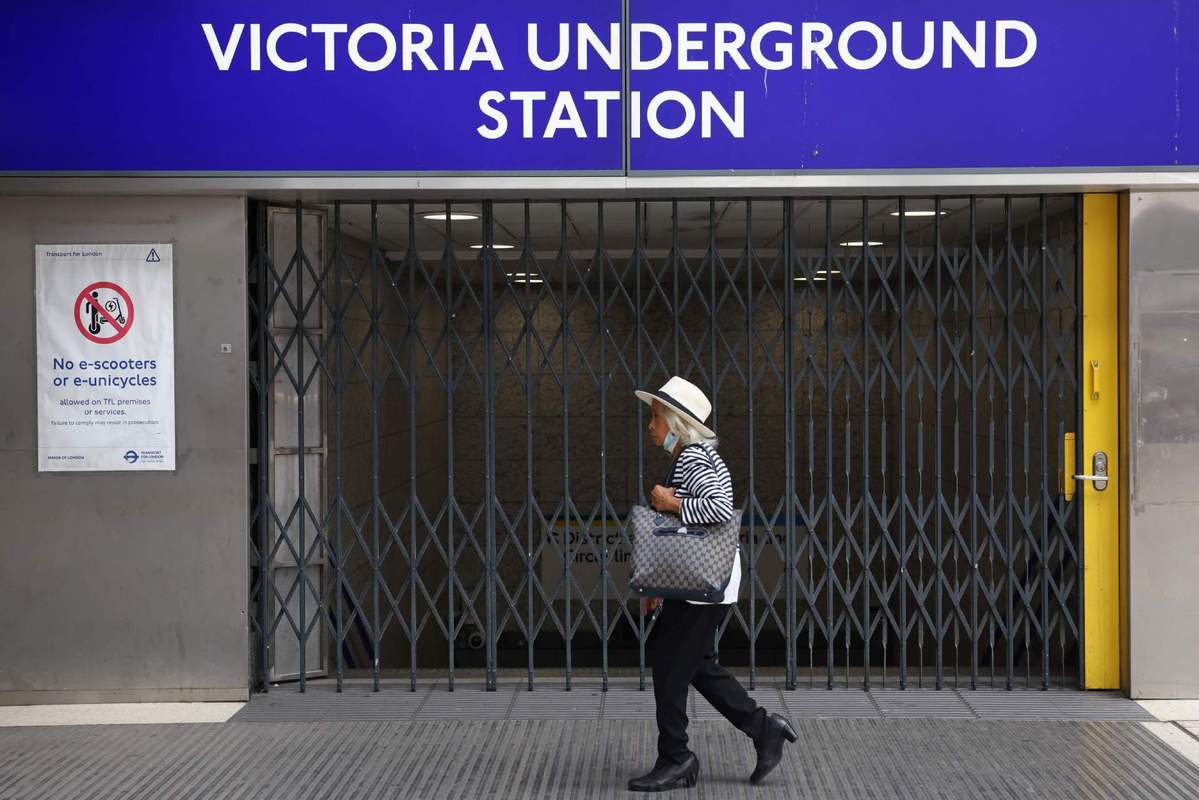No solution in sight in UK rail disputes
By BO LEUNG in London | China Daily Global | Updated: 2022-08-29 09:38

The United Kingdom has seen a number of train strikes over the summer. The latest took place in August, which stopped rail services-and buses-in London for three days.
So far, no further strike action has been announced, but with talks between the RMT, the National Union of Rail, Maritime and Transport Workers, and Network Rail deadlocked, there could be the possibility of more industrial action.
The walkout is over pay, pensions, working conditions and potential job losses as the cost-of-living crisis continues, and inflation reaches a 40-year high.
The Transport Salaried Staffs' Association, or TSSA, and the train drivers' union, the Associated Society of Locomotive Engineers and Firemen, or ASLEF, are also involved in the industrial dispute.
Mick Pender, a lecturer in human resource management at Keele Business School in Staffordshire, said that the current rail disputes appear to have reached an impasse and the positions of the parties involved have become entrenched.
"We are witnessing the government's attempts to continue its agenda of modernizing and reforming public services. There is also, according to rail operators and government, a 2-billion-pound ($2.3 billion) funding deficit in national rail and the London Underground that has resulted out of a decline in passenger numbers as many people continue to work from home," Pender said.
He added: "The key principle on the part of rail operators is that any settlement would lead to greater efficiencies but this, of course, threatens long-established ways of working and this puts pressure on those unions involved who are trying to defend the terms and conditions of members-many of whom, certainly in the case of the RMT, are on wages between 25,000 and 31,000 pounds, and who rely on established bonus payments, rest days and unsocial working allowances-that are under threat."
The RMT claimed that thousands of maintenance jobs were being cut across the rail network and there have been no guarantees of no compulsory redundancies.
Britain's Transport Secretary Grant Shapps caused fury among unions after he told British media this month that he would consider enacting legislation known as section 188, a compulsory redundancy notice, which would force through some measures which brought on the strikes.
On Shapps' comments, the TSSA said: "Such notice for compulsory redundancies has already been issued by Network Rail with their proposal to cut up to 1,900 jobs from the industry. This is not 'reform', it's just cuts. It is one of the reasons why TSSA members are on strike."
RMT General Secretary Mick Lynch said the transport secretary had "no authority to issue section 188 notifications".
Lynch said: "Instead of threatening to cut thousands of safety-critical jobs, introducing driver-only trains, closing ticket offices, bailing out the private rail companies as well as bringing in more anti-union laws, the government and the employers should enter meaningful negotiations with RMT."
Pender noted: "What we are seeing throughout the dispute is effectively an attempt by the government to control any potential outcome; the government is very involved in terms of setting the parameters of the negotiations on the part of the employers."
He described Network Rail as being "effectively a government in hiding, who are shaping the negotiations and, in a sense, tying the hands of the railway operators when it comes to attempts to settle these disputes".
Meanwhile, Manuel Cortes, TSSA general secretary, has written to the transport secretary calling Shapps to "break the impasse in the rail dispute".
The TSSA believes that Shapps not only has the power to intervene to find a solution, but rail contracts stipulate that the Department for Transport is ultimately responsible for changes relating to rail employees.
Cortes said, "We have made it clear from the start of this dispute that we do not take industrial action lightly and always look for a solution."
As to whether there will be a settlement soon, Pender said it's difficult to predict.
"The unions have said that they are prepared to work toward a settlement as long as the threat of compulsory job losses is off the table and that there is a meaningful pay offer that is in line with inflation," the Keele Business School lecturer said.
"As it stands, this is not the case and the operators, through Network Rail, have offered 8 percent over two years which is conditional on restructuring. The RMT has stated that this effectively amounts to a pay cut as it's over two years, way below the rate of inflation and its members did not receive a pay rise last year."
For the union's part, any operators entering into negotiations must be meaningful and free from political interference, Pender added.
























